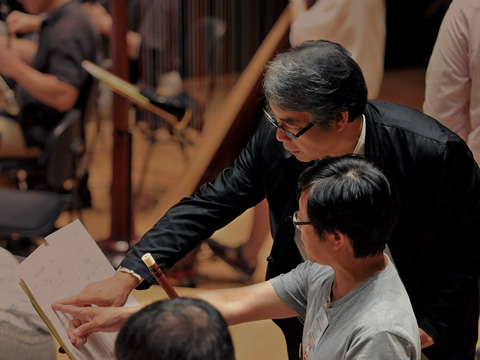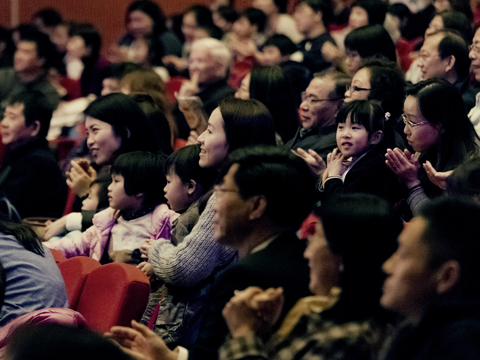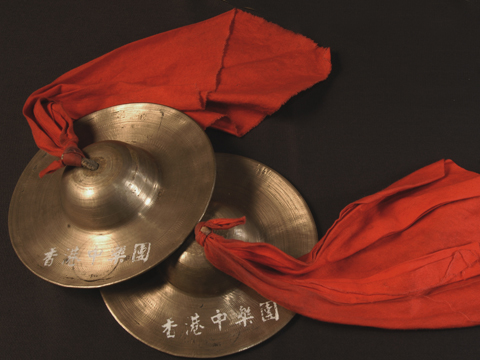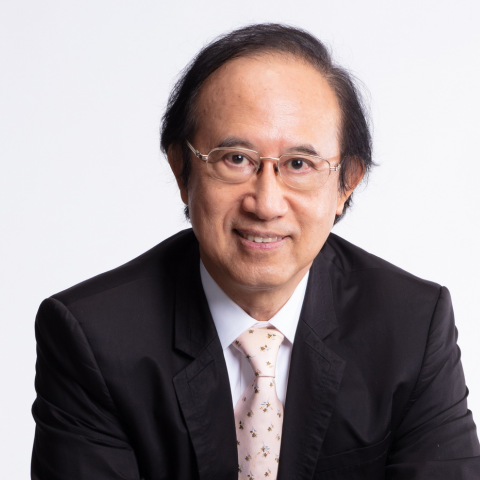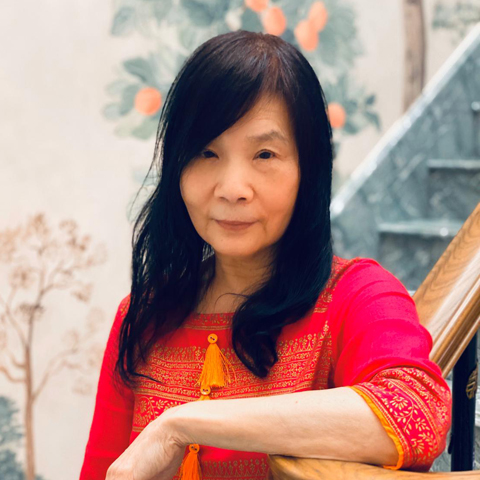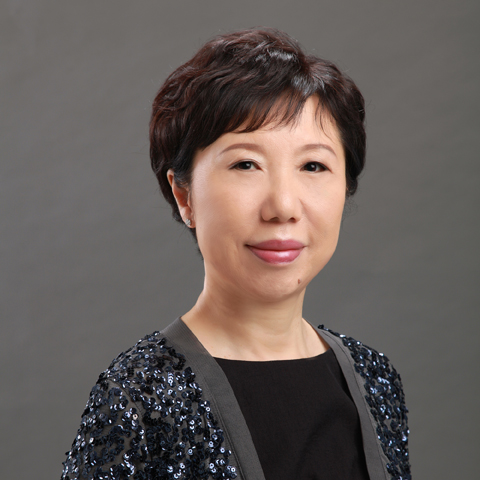
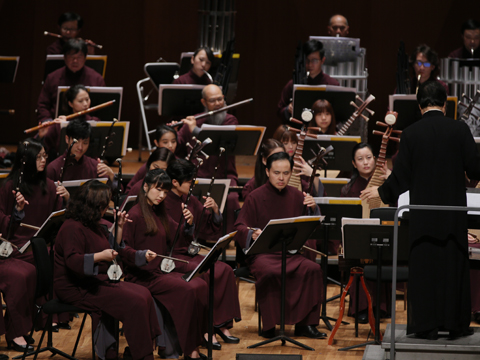
HKCO
Hong Kong Chinese Orchestra Environmental, Social and Governance Artistic Director and Principal Conductor for Life Orchestra Members Council Advisors & Artistic Advisors Council Members Management Team Vacancy Contact Us (Tel: 3185 1600)

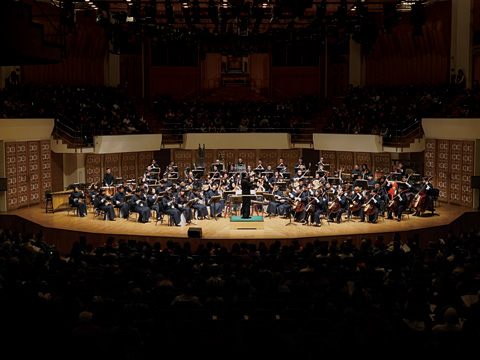
Concerts

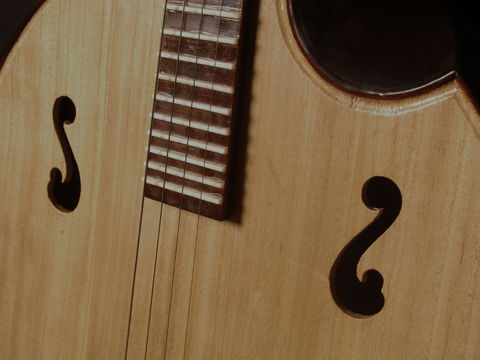
Education
The HKCO Orchestral Academy Hong Kong Youth Zheng Ensemble Hong Kong Young Chinese Orchestra Music Courses Chinese Music Conducting 賽馬會中國音樂教育及推廣計劃 Chinese Music Talent Training Scheme HKJC Chinese Music 360 The International Drum Graded Exam

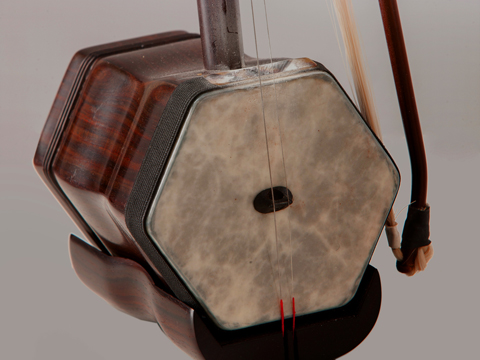
Instrument R&D
Eco-Huqins Chinese Instruments Standard Orchestra Instrument Range Chart and Page Format of the Full Score Configuration of the Orchestra
45th Orchestral Season
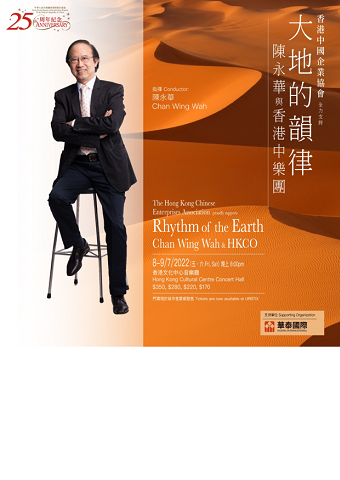
Rhythm of the Earth
Chan Wing Wah & HKCO
Celebration Event of the 25th Anniversary of the Establishment of the Hong Kong Special Administrative Region in 2022
Proudly Supported by The Hong Kong Chinese Enterprises Association
Organ: Wong Kin-yu
Chorus (alphabetical order): Allegro Singers, Harmonic Singers, HKUAA Choir, Hong Kong Oratorio Society, Ko Chorus, Ponte Singers, The Pro-Musica Society of Hong Kong, WYK Old Boys' Choir
Eight Steeds Chan Wing Wah
Symphony No. 10: Spring and Autumn Chan Wing Wah
(Commissioned by the HKCO/ World Premiere)
For Piano and Orchestra My Own Rhythm Chan Wing Wah
Piano: Nancy Loo
Symphony No. 8: This Boundless Land for Choir, Organ and Chinese Orchestra Chan Wing Wah Lyrics by Sonia Ng
Organ: Wong Kin-yu
Chorus (alphabetical order): Allegro Singers, Harmonic Singers, HKUAA Choir, Hong Kong Oratorio Society, Ko Chorus, Ponte Singers, The Pro-Musica Society of Hong Kong, WYK Old Boys' Choir
The concert runs approximately 75 minutes with a 15-minute intermission.
Rhythm of the Earth
Cultural entertainment venues in Hong Kong are reopening as pandemic restrictions gradually ease. The public can once again enjoy cultural programmes for the relaxation of both mind and body. In July, the Hong Kong Chinese Orchestra (HKCO) will present the concert ‘Rhythm of the Earth: Chan Wing-wah & HKCO’, featuring renowned Hong Kong conductor and composer Professor Chan Wing-wah in a leading role. He will be joined by the HKCO, music virtuosi and choruses in performing his celebrated works Eight Steed, My Own Rhythm and Symphony No. 8: This Boundless Land to convey a message of solicitude to Hong Kong and the world. The HKCO will give the world premiere of Professor Chan’s latest opus, Symphony No. 10: Spring and Autumn, in celebration of the 45th Anniversary of the HKCO. The occasion promises to be a wonderful musical feast for all.
Hong Kong is like a steed, always on the go
Professor Chan is an old friend of the HKCO, having shared the concert stage in many performances in the past. On this occasion, he has picked four of his works, with Eight Steeds which was commissioned by the HKCO as the opening number and a rallying call to the community of Hong Kong. In Professor Chan’s words, “The ancients shared a passion for horses, be they from the East or the West. One example is the Greek mythology about Apollo the Sun God, who drives his chariot pulled by eight soaring stallions across the sky every day. In the Western Zhou period of ancient China, King Mu of Zhou (976-922 BCE) also had eight steeds drawing his chariot and they covered ninety thousand li of ground together. The music keeps a consistently fast-paced rhythm from beginning to end, suggesting the fighting spirit that the Hong Kong people are famous for. As we look back on the development history of Hong Kong, we can see that we share the drive to work towards a goal, just like charging steeds, always alert, always looking ahead. History told us about the eight legendary steeds, and Hong Kong is a modern incarnate. May the spirit of Hong Kong be undaunted by any obstacles and look only at the finishing line ahead, where the winner is rewarded.”
Celebrating the 45th Anniversary of the Hong Kong Chinese Orchestra
Following closely on from Symphony No. 7: The Great Wall and Symphony No. 8: This Boundless Land, Professor Chan’s tenth symphony Spring and Autumn is another HKCO commission, to mark the occasion of the Orchestra’s 45th Anniversary.
“I love reading history, especially stories about the Warring States, the Three Kingdoms, and the Han and Tang dynasties. Spring and Autumn is about the Eastern Zhou period, an era which nurtured traditional wisdom and accomplished a spirit of multiculturalism. The music is in three movements: it opens with a surging momentum that heralds those troubled times of the Spring and Autumn period, during which heroes emerged in great numbers and the Five Hegemons reigned supreme. The second movement slows down to a romantic mood, telling the love story between the hermit Xiao Shi and Nongyu, the daughter of Duke Mu of Qin, one of the Hegemons. Their story is also the origin of the Chinese idiom cheng long kuai xu (a perfect son-in-law), and has been eulogised by the genius poet Li Bai in Phoenix Terrace. In the Chronicles of the Eastern Zhou Kingdoms, the sight of the moon one day brought Duke Mu of Qin fond memories of his daughter. He later dreamt that the couple came to him on a phoenix, and they visited the Moon Palace together. Soon afterwards, Duke Mu fell ill and died. This non-violent passing of a feudal noble was a rare occurrence during the Warring States period. The final movement ends with the unification of the Six Kingdoms by the Qin, signaling the end of chaos with the world stepping towards peace.”
Living for Oneself at One’s Own Pace
A Desire to Engender True Peace
“The morning light glows again in this boundless land, the sun and moon shining together in eternal peace” is the final verse in Symphony No. 8: This Boundless Land, a monumental paean to peace that won the CASH Golden Sail Music Award. Composed by Professor Chan with lyrics by Dr. Sonia Ng, this pursuit of peace will be performed by a Chinese orchestra, a pipe organ and choruses. “This composition is inspired by our travels to places like Europe and the Middle East, among others. Having seen the scourge brought by WWII, we felt keenly that such sights reveal the destruction of nature’s harmonious order. Through the music, we reflect on the insatiability of human desires and long for a future world where love replaces hatred and peace supplants war”.The three movements begin with the state of chaos during primordial times. The bass section follows, representing anthropogenic disasters and wars that result in life being destroyed and humanity being displaced. Finally, it is hoped that humans can reflect on their ways and return to the righteous path, in order for world order to be restored and for the morning light to shine once again. The special feature of this symphony is that Chinese music is rarely performed in ensemble with a pipe organ. Adding a choral voice in accompaniment makes the performance even more magnificent. “As not many venues are equipped with a pipe organ, it is indeed a rare opportunity to perform this ensemble.” Professor Chan added that when composing this piece, he felt the scourge of war would never end. Today, looking into the distance, he hopes that the world can usher in true peace.Your Support
Friends of HKCO
Copyright © 2025 HKCO
